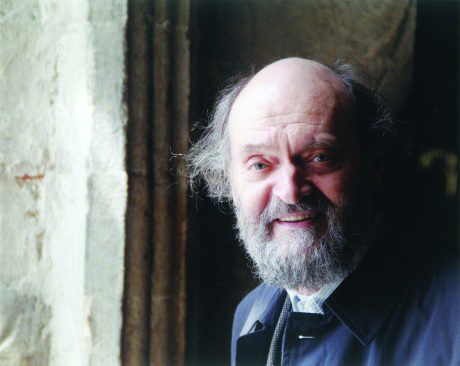FRATRES, for violin and piano
Arvo Pärt
(b. Paide, Estonia, September 11, 1935)
Composed 1977, this arrangement 1980; 11 minutes
Consciously rejecting complexity, Estonian composer Arvo Pärt seeks to uncover a simple truth in his music, using repetition as a foundation for its building blocks. Religious or spiritual feeling, drawing on sources that go back to Gregorian chant, adds to its appeal. Fratres, originally composed in 1977 as three-part music without specified instrumentation, is one of his earliest pared-down pieces. Its Latin title meaning ‘Brethren’ adds to the quasi-religious feel underlining the music. Now among his most-arranged and most performed pieces, Fratres opens with a brilliant, across-the-strings prelude to an as-yet unstated theme. The solemn, modal melody then travels through a sequence of contrasting, emotionally wide-ranging variations over a skeletal, ever-present piano chant, punctuated by a tolling, deep bell-like piano note.

“Here I am alone with silence. I have discovered that it is enough when a single note is beautifully played. This one note, or silent beat, or a moment of silence, comforts me. I work with very few elements – with one voice, with two voices. I build with the most primitive materials – with the triad, with one specific tonality. The three notes of a triad are like bells. And that is why I called it tintinnabulation.” Arvo Pärt